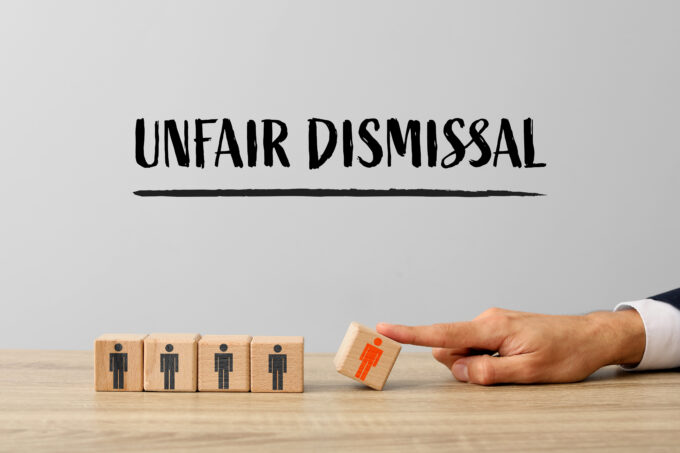As mental health continues to gain recognition in workplace law, businesses should build a relationship with a specialist Employment Lawyer to ensure the business has well-crafted contracts and policies, as well as access to expert advice when required, to reduce the risk of adverse employment law claims like unfair dismissals.
High Court Ruling Expands Employer Liability for Workplace Psychological Harm in Unfair Dismissals
A groundbreaking decision by the High Court of Australia in Elisha v Vision Australia Limited [2024] HCA 50 (Elisha) has set a new precedent by allowing damages for psychiatric injuries caused by an employer’s breach of contract.

Implications for Employers and Employment Law
This decision may carry significant consequences for Australian employers, emphasizing the need for compliance with workplace policies and fair disciplinary procedures.
It also highlights evolving legal perspectives on workplace relationships and mental health, opening discussions on the broader availability of compensation for psychiatric harm resulting from contract breaches.
The case underscores the importance of ensuring that internal policies and agreements are not unintentionally incorporated into employment contracts.
Employers must strictly adhere to established protocols, particularly in disciplinary and termination procedures, to avoid legal ramifications.
Case Background: A Closer Look at the Dispute
Mr. Elisha joined Vision Australia Limited in 2006 under an employment contract that required adherence to company policies, including those governing disciplinary actions as outlined in its Enterprise Agreement.
In March 2015, during a work trip, he was accused of exhibiting aggressive behaviour toward another hotel guest. Vision Australia initiated disciplinary proceedings, assuring Mr. Elisha that the process would follow its Enterprise Agreement and Disciplinary Procedure.
However, the company factored in previous unaddressed allegations of aggressive behaviour without giving him an opportunity to respond. Ultimately, his employment was terminated.
A trial court later condemned Vision Australia’s investigation, labelling it a “sham” and a “disgrace.” The court found that the company failed to adhere to its own contractually binding disciplinary procedures, leading to an unfair dismissal claim.
Crucially, the court also determined that Vision Australia’s failure to conduct a fair investigation directly caused Mr. Elisha to develop a severe psychiatric illness—major depressive disorder—which would not have otherwise occurred. Significant damages were awarded in Mr. Elisha’s favour.
Key Legal Question: Can Employers Be Liable for Psychiatric Injury?
Yes.
Historically, the principle set in Addis v Gramophone Co Ltd [1909] AC 488 dictated that damages for wrongful dismissal did not extend to emotional distress or reputational harm. This stance was reinforced in the UK case Johnson v Unisys Ltd, which ruled that employees could not claim damages for mental suffering caused by dismissal.
The High Court in Elisha departed from these precedents. It concluded that an employer’s contractual duty includes liability for recognized psychiatric injuries, such as major depressive disorder, if they result from a serious contractual breach.
Legal Considerations: Foreseeability and Remoteness of Damages
Once liability for psychiatric harm is established, general contractual principles regarding remoteness apply.
The High Court determined that psychiatric injury was a foreseeable outcome of Vision Australia’s failure to conduct a fair disciplinary process at the time the employment contract was formed.
Although the precise nature of the breach did not need to be anticipated, the unfair dismissal and flawed investigation were deemed the direct cause of Mr. Elisha’s psychiatric injury.
Changing Legal and Societal Attitudes Toward Mental Health
This decision reflects shifting societal views on workplace mental health.
The Court rejected Vision Australia’s reliance on outdated precedents, emphasizing that Addis was decided over a century ago in a vastly different social and legal context.
The ruling aligns with modern legal developments in both Australia and the UK, signalling greater recognition of mental health in employment law.
Key Takeaways for Employers
This landmark ruling provides several important lessons for employers:
- Employment Contracts: Ensure that workplace policies and procedures are not unintentionally incorporated into employment contracts unless explicitly intended.
- Adherence to Procedures: Employers must strictly follow internal disciplinary policies and procedures, particularly when they are contractually binding.
- Fair Investigation Practices: All allegations must be clearly communicated to employees, allowing them to respond before disciplinary action is taken.
- Impartial Investigations: Workplace investigations must be objective and free from bias to ensure procedural fairness.
- Legal Compliance: This ruling sets a precedent for expanding potential employer liability for psychiatric harm resulting from contract breaches.
Conclusion: A Shift in Employment Law
The Elisha case marks a significant evolution in Australian employment law, recognizing psychiatric injury as a compensable harm in cases of employer misconduct.
Employers must now take greater care in their disciplinary procedures, ensuring fairness to avoid legal consequences.
As mental health continues to gain recognition in workplace law, businesses should proactively review their policies to mitigate potential risks.
Taking a proactive approach and building a relationship with a specialist Employment Lawyer ensures your business has well-crafted contracts and policies and expert advice when required, reducing your risk of adverse employment law claims.
Employment Lawyers for Sydney and Newcastle
Need Answers Fast? Contact Us Today
The information in this article is not legal advice and is intended to provide commentary and general information only. It should not be relied upon or used as a definitive or complete statement of the relevant law. You should obtain formal legal advice specific to your particular circumstance. Liability limited by a scheme approved under Professional Standards Legislation.

























